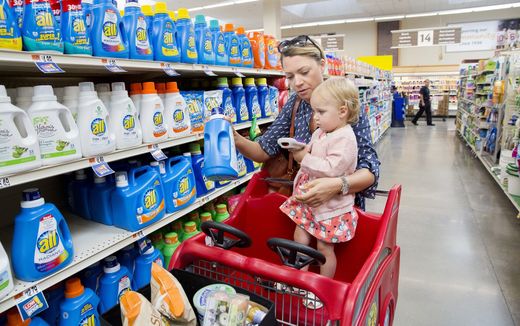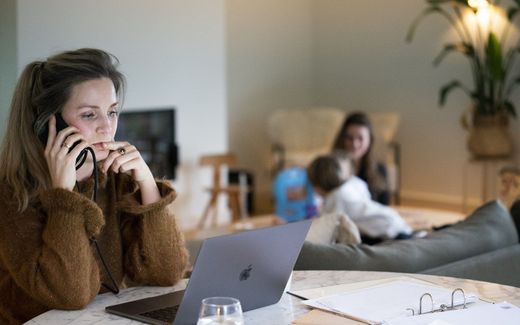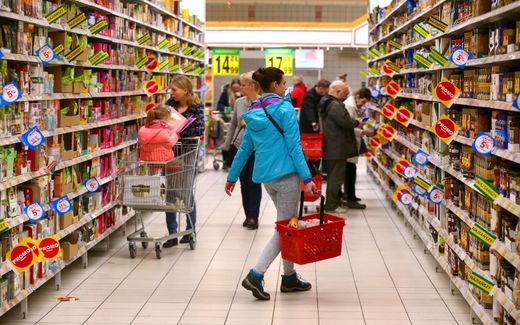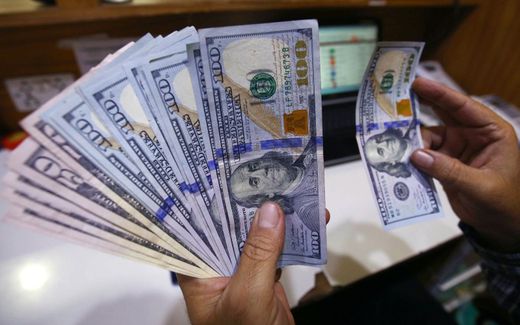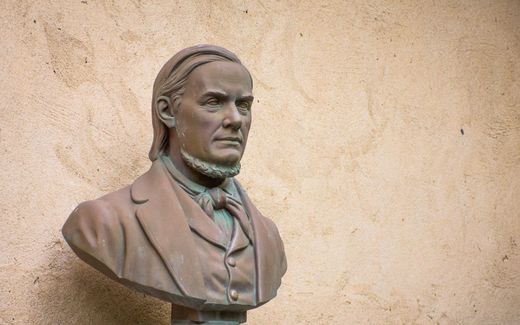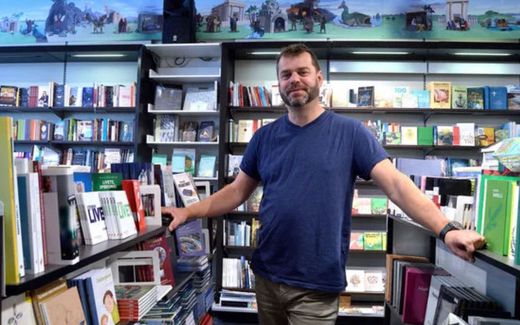Look how hard it is for Christians to follow the Bible on money
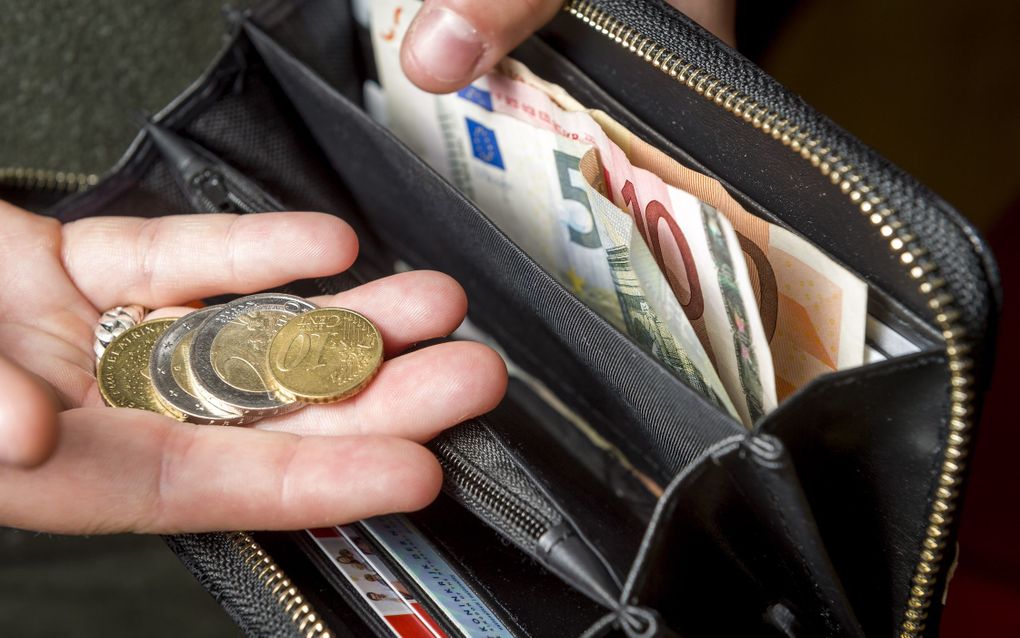
Money in the pocket is important. Photo ANP, Lex van Lieshout
Christian Life
How to keep the money in your pocket. That is a challenge for young and old, believers and non-believers. But there is help if it gets too difficult, shows Vlady Raichinov in his column from Bulgaria.
Tanya Vancheva has two credits with different banks. One is a mortgage for a new apartment in Sofia. The other is a consumer loan to help pay off the first credit.
Well into her thirties, Tanya is single and struggling to survive in the big, unfriendly city. Initially, she comes from a smaller settlement, but various life choices have brought her to the capital. She now works two jobs (one in a casino), barely attends church and has difficulty starting a relationship.
Hundreds of thousands of young adults lead a similar lifestyle. They postpone getting married and having children, weighed down by the burden to make the two ends meet. And more often than not, they end up with a heavy bank loan that suffocates their future before it has had a chance to blossom.
Loans
At the end of May, the Bulgarian National Bank (BNB) announced that annual growth of consumer loans has increased by 44 per cent. In April alone, credit institutions allocated consumer loans to households of 491 million euros. This is a record monthly amount, even if you exclude the renegotiated and refinanced loans. The growth of mortgage loans is even more staggering: 60.5 per cent compared to last year’s period.
This faster lending comes with keeping interest rates low, even though EU central banks have raised them over the past two years. Banks continue their credit expansion, despite the BNB warnings about increasing the indebtedness of the population, and inability of many households to serve their loans.
Against this backdrop, Bulgaria has been preparing to abandon its national currency “Lev” (the word means “lion”) and convert to Euro. “We believe Bulgaria will meet the criteria at the end of the year, and I will request an emergency report that opens the possibility to enter the Eurozone in mid-2025,” deputy finance minister Metodi Metodiev said during the “Sound of Money” annual forum in Sofia on June 4.
The country’s Ministry of Finance expects to meet Eurozone criteria by the end of 2024. Still, it now looks increasingly unlikely that the change would happen on January 1.
The country’s currency has been tied to the Euro since 1999, and Bulgaria has been in the EU banking union since 2020. However, according to a recent analysis in Politico, Bulgaria will not be able to join the Eurozone next year because of “high inflation and wavering public support” for the change.
In a Eurobarometer survey held in 2023, Bulgarians express lower than average support for joining, as well as higher than average concerns about issues such as abusive price setting during the transition.
“Our car needs repair, our washing machine broke down, an unexpected tax bill just arrived, and our daughter is due for expensive dental treatment. We feel depressed. If either of us loses our job, we have no idea how we would cope.” Various forms of this sentiment are shared by many families across Europe today.
The question of finances is a heavy rock drowning too many people. We lose sleep plagued by money-related concerns: “How do I get more cash?” “How can I protect what I own?” “How do I plan better in an unstable world?”
Disturbing statistics reveal a picture of quickly escalating consumer debt, drastically declining savings rates, and disagreements over money being a major cause of marriage divorce. According to some studies, one in every six Christian families is burdened by a problematic debt; money deficiency is a top stress factor in many societies, and more than a third of Europe’s population is severely anxious about paying the next bill. And yet, somehow there has been a strong reluctance in the Church to talk about money.
Rising to the occasion, various Christian ministries in Europe have gathered theological passion and practical expertise, hoping to turn the tide. One such group is Compass Europe, a “financial discipleship community” attempting to equip believers “to faithfully apply God’s financial principles, so they may know Christ more intimately, be free to serve Him and help fulfil the Great Commission.”
The ministry has prepared an abundance of resources on Biblical stewardship:
- Online courses for personal growth, church groups, family studies and business settings.
- YouVersion reading plans related to budgeting, lifestyle, coveting, abundance, or greed.
- Coaching and mentoring options are intended to help Christians grow holistically as disciples.
“Compass is a nondenominational organisation with a decades wealth of experience,” Bulgarian branch representatives Pavel Pavlov and Vladislav Zhelev explain. “Its main purpose is to teach Biblical principles for financial stewardship so that the disciples of Jesus Christ would be free to serve God faithfully with their possessions.”
Since the Bible speaks a lot about money, we cannot shy away from these passages, Pavlov and Zhelev recently pointed out in an interview for the Bulgarian newspaper Zornitsa. More than 2,350 verses in Scripture talk about money and material possessions. In comparison, verses related to faith are about 500, and on prayer – even less.
Compass Bulgaria is one of 19 such groups operating in Europe. The global organisation is active in more than 80 nations. Its European branch is headed by Bert den Hertog from the Netherlands. “We need an all-life approach to discipleship, and not just separated approach in the spiritual aspects,” he says in an interview for the Forum of Christian Leaders.
In February 2025, Compass Europe is planning its international conference in Budapest under the theme of “Restoring Financial Hope”. The event is open to anyone interested in seeking reform in financial discipleship. “If we look at 21st century Europe, we can see a lot of despair, especially in the financial area,” the organisers write. “Our mandate as Christians, and particularly as Compass Europe, is to restore this hope.”
A coaching like that is exactly what Tanya Vancheva may need to straighten out her life. Against the backdrop of economic uncertainty, Biblical stewardship may really be the key to a more sustainable future for Europe.
Tanya is a real person, but she has a different name.
Related Articles



